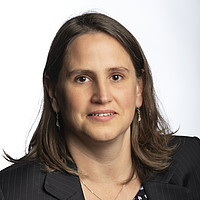The Ombudsman's Office of the Doctoral Academy Graz
(Kopie 1)
For all those personal or interpersonal problems where you do not know whom to turn to, the Doctoral Academy Ombudspeople Office is there for you. Here you can gain an insight into the inquiry process and the ombudspersons who can offer you support.


The tasks of the ombudspersons
- Mediation in the event of serious conflicts during doctoral training,
- Mediation in cases of inappropriate behavior and/or discrimination,
- Assistance with questions regarding good scientific practice,
- Assistance with individual problems on the way to the doctorate.
(Kopie 2)
The ombudspersons are experienced scientists from various disciplines who adhere to the principles of strict confidentiality, independence and neutrality.
For details, you can take a look at the statutes of the ombudsman's office for details.
To the procedure
Doctoral students can address their concerns to the ombudsperson of their choice (regardless of their academic background) or by e-mail to the ombudsperson's office. In the case of an e-mail to the ombudsperson's office, the email will be forwarded to an ombudsperson who is most suitable for the matter. This person will consequently contact the doctoral candidate to arrange a meeting to discuss the issue.
The ombudsperson is objectively independent and is not bound by instructions in this function.
Every inquiry will of course be treated confidentially!
The ombudspersons
As a former Vice-Rector for Research and Promotion of Young Researchers, founder and director of the Doctoral Academy and a long-time supervisor of doctoral students myself, I have become familiar with the structures of the university, in particular doctoral education and most of the lecturers in the Doctoral Academy, as well as many problems that (can) arise for doctoral students. I have also already helped to solve many individual concerns and difficulties. Many doctoral students and lecturers therefore know that they can turn to me with confidence for all problems arising in connection with the dissertation and its supervision (both personal and academic) if things are somehow not going as they should. My motto has always been: We will find a way - and if not, we will build one!
As Laozi said, "Only those who know their goal will find the way." I would like to offer support in removing the stumbling blocks on this path.
- Assistant Professor Dr. Tea Pavkov-Keller
As an ombudsperson, I see my main task as providing neutral and independent advice and mediation in the event of conflicts, questions about good scientific practice or questions about inappropriate behavior in the context of doctoral training. Trust plays a key role in this context, which is why I take the duty of confidentiality to which I am subject very seriously. I see my role as an impartial mediator who has a great interest in a high-quality and at the same time humanly balanced doctoral education and therefore strives for balance in any related issues.
I see myself as a service point for young academics. In this role, I will endeavor to support our doctoral students in their research and career planning in the best possible way.
- Professor Bettina Nunner-Krautgasser
The mutual expectations of doctoral students and their supervisors have changed significantly, including in the direction of structuring, internationalization and de-hierarchization. Conflicts and frustrations arise because expectations are often not adequately articulated and because doctoral students find themselves in a special relationship of dependency - dependent on being treated fairly by supervisors and superiors, being well guided and at the same time being given freedom to conduct independent research. I am happy to be available as a contact person to participate in appropriate learning processes and to help with any problems that arise, to facilitate dialog and to find solutions.
- Prof. Dr. phil. Ulrich Ermann
(Kopie 3)

Univ.-Prof. Dr.phil. Peter Scherrer
+43(0)664 88688433
Institut für Antike
Dienstag 15.00-16.00 Uhr oder nach Vereinbarung

Priv.-Doz. Mag. Dr. Tea Pavkov-Keller
+43 316 380 - 5483
Institut für Molekulare Biowissenschaften
nach Vereinbarung (tel. oder per E-mail)
https://molekularbiologie.uni-graz.at/de/unsere-forschung/strukturbiologie

Univ.-Prof. Mag.rer.nat. Dr.phil. Martin Arendasy

Univ.-Prof. Dr.iur. Bettina Nunner-Krautgasser
+43 316 380 - 3341
Institut für Zivilverfahrensrecht und Insolvenzrecht
Um telefonische Terminvereinbarung im Sekretariat DW 3342 oder 3347 wird gebeten
zivilverfahrensrecht.uni-graz.at

Univ.-Prof. Dr.phil. Ulrich Ermann
+43 316 380 - 8826
Institut für Geographie und Raumforschung
Sprechstunden für Studierende: Mittwochs 09:00 - 11:00 Uhr
https://homepage.uni-graz.at/de/ulrich.ermann/